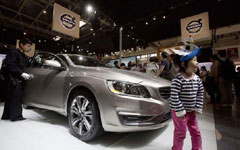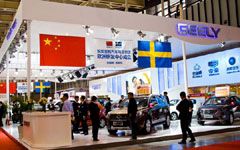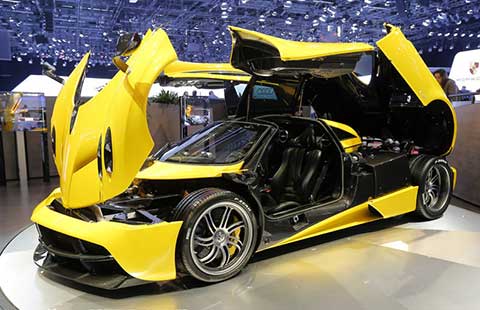Volvo's China export plans mark new phase in Geely strategy
(Agencies) Updated: 2014-06-23 17:22
 |
|
Workers assemble parts of a Volvo car at an assembly line of the new Volvo automobile manufacturing plant in Chengdu, Sichuan province, June 5, 2013.[Photo/Agencies] |
Volvo Car Corp's plans to turn China into an export hub shows parent company Zhejiang Geely Holding Group Co is out to disprove pessimists who have cast doubt on Chinese companies' ability to manage global consumer brands.
A senior Volvo executive said the Swedish automaker would start exporting Chinese-made sedans, a long-wheel-based version of the S60 called the S60L, to the United States and the XC90 utility crossover to Russia as early as the end of next year.
Volvo is also aiming to beat its 2014 sales target for China by at least 13 percent as it opens more showrooms in the world's biggest auto market, according to the executive, who requested anonymity because he is not authorised to speak with reporters.
|
 |
 |
Geely's purchase of Volvo from Ford Motor Co four years ago surprised many in the auto industry, who doubted that a relative newcomer could turn around the loss-making 87-year-old Swedish business while protecting its famous brand.
But Yale Zhang, head of Shanghai-based consulting firm Automotive Foresight, said Volvo's outlook under the ownership of Geely and its founding chairman Li Shufu now looked "impressive", as Chinese demand for entry-level luxury cars soared.
"Chairman Li has been so patient with Volvo and it's finally paying off," he said.
Investors in other Chinese firms that are struggling to manage foreign consumer brands are intensely interested in how Li, dubbed the Henry Ford of China, handles Volvo.
Lenovo Group Ltd, for example, had trouble maintaining market share for years after its 2005 purchase of IBM’s personal computer business, though the company is faring better recently.
Another cautionary tale is SAIC Motor Corp, which bought roughly half of South Korea's Ssangyong Motor Co in 2004 but had to sell its stake after Ssangyong's business slumped in the wake of the financial crisis of 2008.
- PBOC takes more steps to liberalize interest rates
- Qoros 3 Hatch prices announced, taking orders
- Bright Food sees bright M&A options
- CAR embraces CTO of IBM Greater China
- 2014 Auto Shenyang Expo opens
- China to build more granaries
- Chengdu to hold electronics fair in July
- Kawasaki to build LNG tankers in China
















